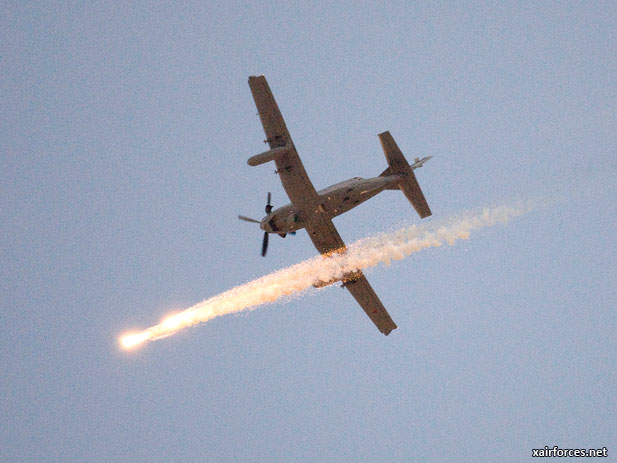
Brazil's Embraer says hopeful on Afghan plane deal

Brazilian aircraft maker Embraer, which won and abruptly lost a contract with the U.S. Air Force to supply up to $1 billion in light attack planes to the Afghan government, said on Tuesday that winning the bid again would prove there were no politics involved.
Embraer President and Chief Executive Frederico Curado said the issue of the contract was raised by the Brazilian government in meetings with the White House on Monday and that the company expects to be able to bid again within a few weeks.
Brazilian President Dilma Rousseff's visit with President Barack Obama on Monday highlighted some strains between the countries, with Rousseff complaining about U.S. monetary policy and U.S.-sponsored sanctions on Iran. The Embraer contract cancellation was another point of tension.
Privately held Sierra Nevada Corp and Embraer beat out Hawker Beechcraft to win the deal in December.
But the Air Force in February canceled the initial contract award, valued at $355 million, when it discovered an error while preparing for a lawsuit filed by Hawker challenging the decision in federal claims court.
The cancellation raised suspicions in Brazil that it was done so that Obama, who faces reelection in November, would not be seen moving jobs abroad.
"We have to in principle trust what we were told ... If we have the same bidding process, the same specs ... we have to believe that we will be selected again and that will prove that there were no politics involved," Curado said.
Embraer, which booked $180 million in orders in March for its Super Tucano light attack fighters in Burkina Faso, Angola and Mauritania, has hoped to extend orders to NATO countries.
The Air Force contract would have been a step in that direction, lifting the company into the upper class of global defense contractors.
Curado dismissed the possibility that U.S. jobs would be lost to the Brazilian commercial planemaker, the world's third-largest.
"It's inaccurate to say the least," he said, citing the fact that the final assembly of the planes would be in the United States. "It would be a U.S.-built aircraft. It would be another export product for the United States in all purposes," Curado said.
A winning bid, the company said, would help sustain 1,200 existing jobs at Embraer, Sierra Nevada, and U.S. suppliers and subcontractors.
Embraer also announced the signing of an agreement on Monday with Boeing Co to cooperate on research and technology in aircraft safety, aviation biofuels, and cockpit safety and efficiency.
Source: WASHINGTON |By Lily Kuo, April 10, 2012 (Reuters)
Photo: Brazil's Embraer Super Tucano light attack fighters for Afghan Air Force
Photo Story: A Hawker Beechcraft AT-6C, modified for various light attack missions, releases flares during an operational test Oct. 5, 2010, over the Southern Arizona desert. It was the first time flare buckets, or aircraft survivability equipment, were mounted onto the airplane and fully integrated with the control system on board. A team of pilots and engineers certified that the airplane could separate the flares correctly while learning if the modification would have adverse effects on the airplane's handling. (U.S. Air Force photo/Master Sgt. Dave Neve)
(10.04.2012)
|